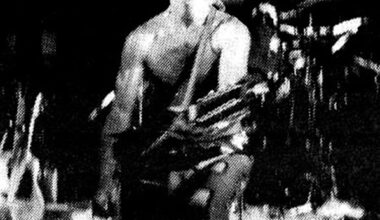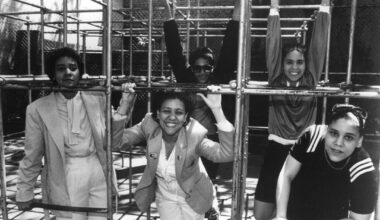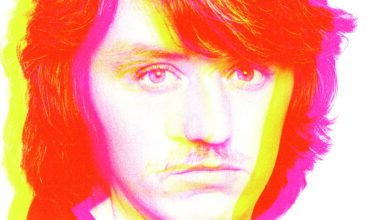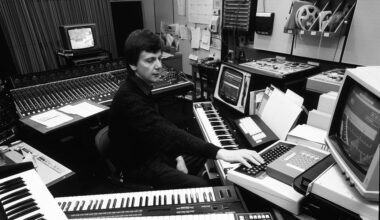Sigue Sigue Sputnik founder Tony James casts his mind back to 1986 and ‘Love Missile F1-11’, a record that sounded – and still sounds – like nothing else
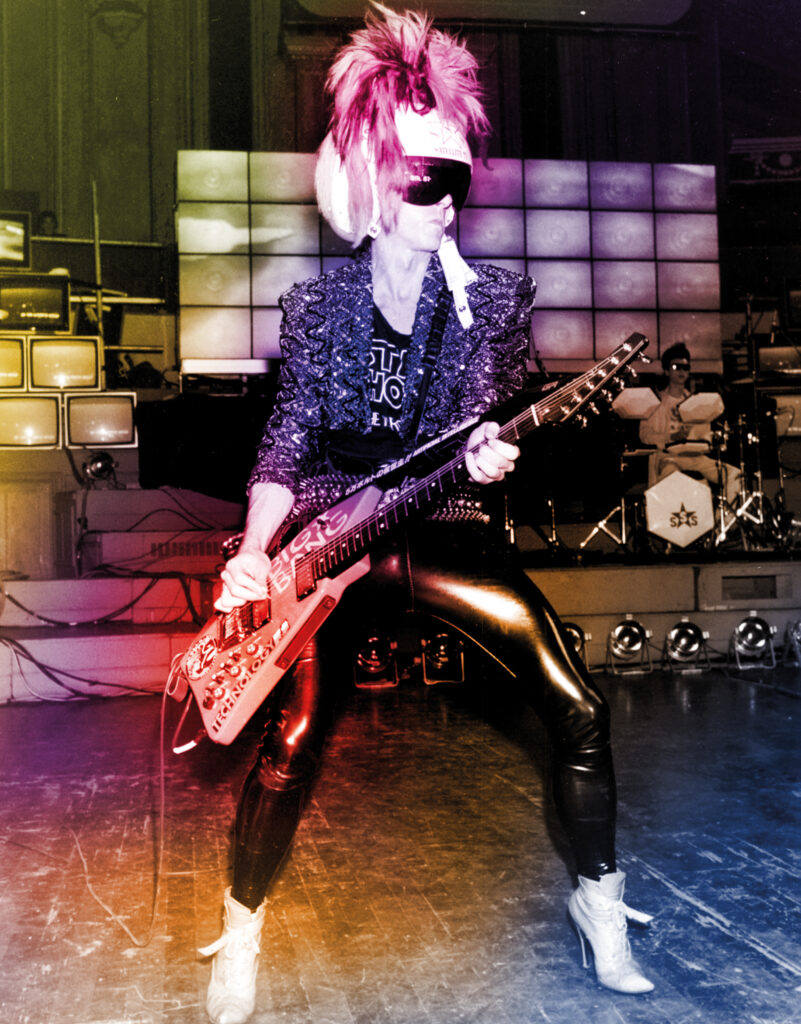
“The premise of Sigue Sigue Sputnik was simple. It was to make electronic rock ’n’ roll music. I’d come out of Generation X, a group that had quite a lot of success and was part of a big movement, and I wanted to create something completely new. I kept thinking, ‘If I walked into a club in 100 years time and Elvis was playing, what would it sound like?’. So that was the starting point. What we came up with was a combination of electronic drums and bass with Eddie Cochran-style guitars and dub effects, with a look that was futuristic as well, like something from a ‘Blade Runner’ or ‘Mad Max’-type world.
“The gestation period was three or four years. It took a long time to find the right people, Martin Degville, Neal X and the others, some of whom had never been in a group before. We had a lot of help from The Clash in the early days, they very much mentored us, and it was while I was in America to see The Clash that Martin and Neal started putting together what would become ‘Love Missile F1-11’. We had a [Sequential Circuits] Pro One synthesiser, which Mick Jones had given me, and Martin and Neal discovered that if you plugged it into an 808 drum machine, it would make this ‘do-do-do-do-do-do-do-do’ sound that formed the basis of the track.
“When I got back from America, we started messing around with other ideas on a Portastudio, the guitar sounds, the vocals, the echo effects and so on. We had a VHS recorder that we’d got from Radio Rentals and we were playing videos in the background, things like ‘Firefox’ and a pirate copy of ‘A Clockwork Orange’ and John Waters films like ‘Pink Flamingos’, and the lyrics were inspired by what we were seeing on the screen. I always said that Sputnik’s lyrics were like an action painting of film and TV images. The title ‘Love Missile F1-11’ was something I’d had for a while and we used it because it sounded good, even though it wasn’t mentioned in the lyrics.
“The final element was when I discovered I could put the demo we had of the track onto a video tape and then bounce across bits of all these films we were watching – dialogue, explosions, machine guns going off – to create a video demo of the track. And that’s what we took to the record companies. We signed to EMI in the end and it was for quite a lot of money. The stories about the amount we got were exaggerated… but it was still a tidy sum. I think if we’d have stayed in the contract for the full term, we’d have got two or three million pounds, and that was then inflated by the press, admittedly encouraged by us because we liked the idea of being the Six Million Dollar Band.
“When it came to turning the demo into a record, EMI asked us who we wanted to produce it and we said either Prince or Giorgio Moroder. Prince never got back to us – although I sat next to him at a lunch 20 years later and he remembered the track and said, ‘Sorry, it was too violent, it wasn’t for me’ – but we were delighted with Giorgio. We loved the fact he’d worked on so many great soundtracks, ‘Scarface’ and ‘Midnight Express’ were two of the other films we were obsessed with, and he’d produced Donna Summer’s ‘I Feel Love’ of course. Giorgio had programmers beyond our wildest dreams and he knew how to get the best out of us.
“The first week that ‘Love Missile’ came out, it sold 60,000 copies a day. It was one of the fastest selling records ever. We had so many magazines after us, it was incredible. We had 46 magazine covers in the space of a month. The journalists loved us because there was so much to write about – the sound, the look, the videos, the slogans, the six million dollars, the confrontational live shows, the six-foot girl roadies… Simon Bates and some of the other Radio 1 DJs refused to play the record, which was also really good for us. It did get out of control, though. We were rampaging around the country, totally intoxicated by what was going on, and it send us all a bit nuts.
“So the record hits the Top 10 and is rocketing up the charts, when I get a phone call from EMI. Some guy from Business Affairs. This guy says, ‘I just want to check you’ve got permission to use all those film extracts on the record’. And I said, ‘What do you mean?’. He says, ‘Have you got clearance?’. And I said, ‘What’s clearance?’. It turned out that Stanley Kubrick had been walking down his local high street when he’d heard the snatches of ‘A Clockwork Orange’ on ‘Love Missile’ blaring out from a record shop. EMI had to pay a huge settlement for that. The remarkable thing is that there are ‘Scarface’ samples all over the track and they never came for us. The same with ‘Rocky IV’.
“Sputnik was the biggest roller coaster ride of my life. All of our lives. We were the biggest band in the world, a huge phenomenon, but for only the very briefest of periods. We exploded out of nowhere… and then imploded just as quickly. I mean, ‘Love Missile F1-11’ was such a great record, how could we top it? We couldn’t. We’d shot our load and that was that. I don’t think we should have tried, actually. We shouldn’t have made an album, we should have stopped there and then. What we achieved was amazing, though. I don’t think there’s ever been another band like Sigue Sigue Sputnik. Everything about us and the whole crazy story was so out there. If we came along today, we’d still be way ahead of our time.”
